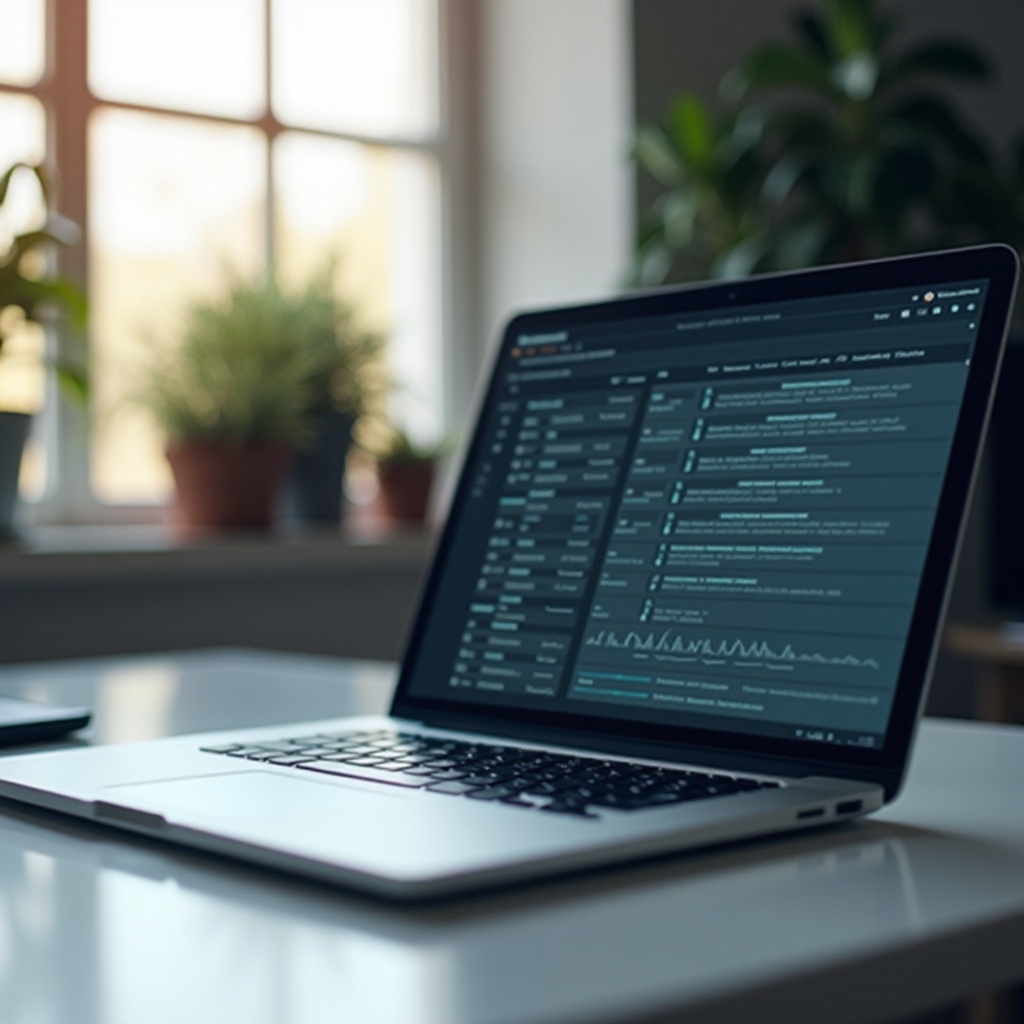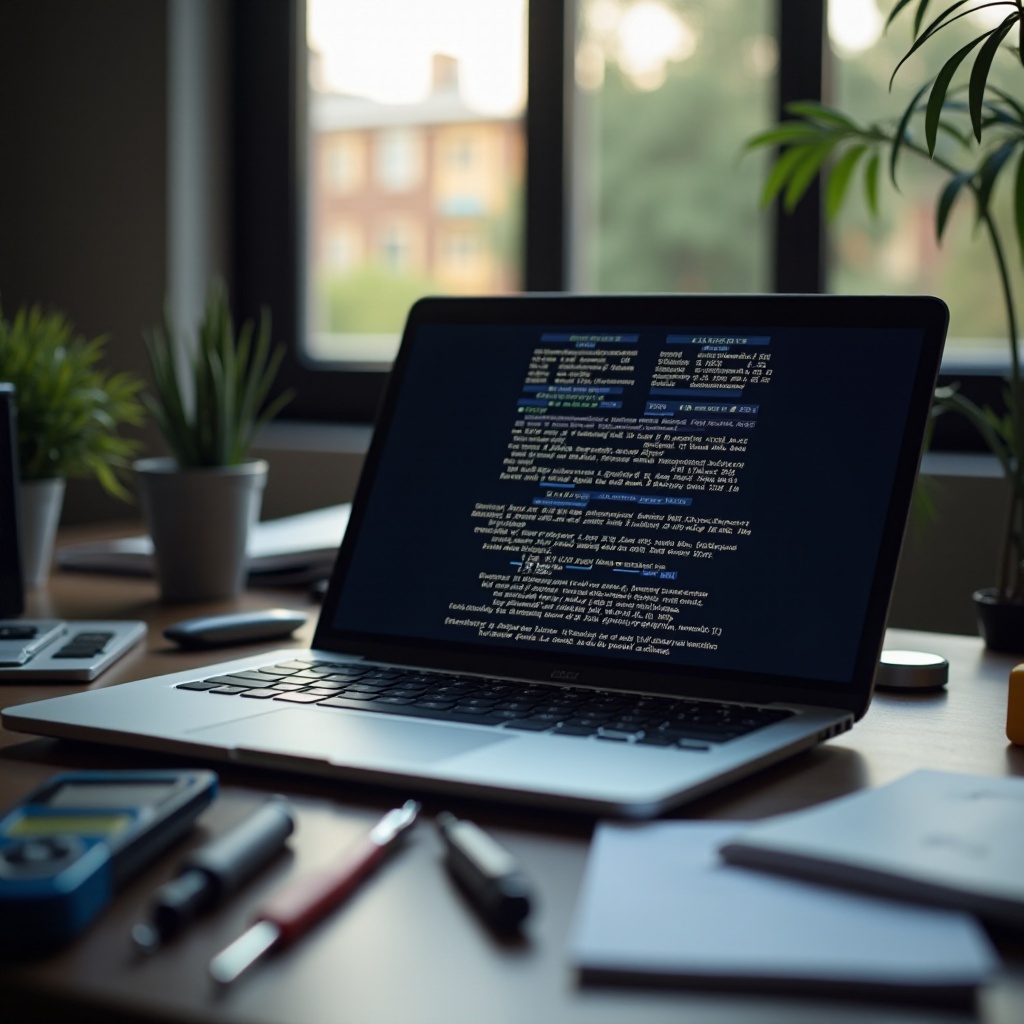Introduction
Beeping noises from laptops can be unsettling. Often, this kind of noise indicates an underlying issue that requires immediate attention. Ignoring these noises may lead to more significant problems down the line. This guide will help you understand the causes, diagnose the issue, and provide actionable solutions to fix the beeping noises on your laptop.

Understanding Beeping Noises
Types of Beeping Noises
Laptops can emit various types of beeping noises, each communicating a specific issue. Common types include:
- Single long beep
- Continuous short beeps
- Repeated long beeps
Understanding the type of beep can give you the first clue toward solving the issue.
Common Reasons for Beeping Noises on Laptops
Several issues can cause beeping noises on laptops. Here are some common reasons:
- RAM issues: Faulty or loose RAM can cause beeping.
- Overheating: When the laptop overheats, the motherboard might beep as a warning.
- Battery and power supply problems: Beeps can signal issues with the battery or power supply.
- BIOS and firmware issues: Errors in BIOS can lead to beeping.
- Hardware failures: Other hardware failures like a faulty hard drive can also trigger beeps.
Identifying these reasons early can prevent further damage to your laptop.
Diagnosing the Issue
Identifying the Beeping Pattern
Different laptops have unique beep codes corresponding to specific issues. Listen carefully to the beeping pattern:
- One beep, pause, one beep usually indicates a motherboard issue.
- Two beeps often mean RAM issues.
- Continuous beeping can point to overheating or power issues.
Manufacturer-Specific Beep Codes
Knowing the specific beep codes can be immensely helpful:
- Dell laptops: Use certain beep patterns to indicate hardware issues.
- HP laptops: Have a unique set of beep codes, such as short and long beeps.
- Lenovo laptops: Also employ beep codes to flag specific issues.
Check your laptop's user manual or the manufacturer’s website for specific beep code information.

Common Causes and Solutions
RAM Issues
Memory problems are frequent culprits for beeping noises:
- Turn off the laptop and remove the power source.
- Open the laptop case to access the RAM modules.
- Reseat the RAM modules: Remove and reinsert them securely.
- Test each RAM module individually to identify if one is faulty.
Overheating Problems
Overheating can harm your laptop:
- Check the ventilation: Ensure the laptop vents are not blocked.
- Clean the fan: Use compressed air to remove dust from fans and vents.
- Apply thermal paste: If you are technically savvy, apply fresh thermal paste to the CPU.
Battery and Power Supply Problems
Power issues can cause continuous beeps:
- Check the power adapter: Ensure it is working correctly.
- Inspect the battery: Remove the battery and check for damage.
- Use a different power source: Plug the laptop into another outlet.
BIOS and Firmware Issues
BIOS errors can lead to beep codes:
- Access the BIOS menu: Restart your laptop and press the key specified by the manufacturer.
- Update the BIOS: Download the latest BIOS update from the manufacturer’s website and follow the instructions.
- Reset the BIOS to default settings: This can sometimes resolve the issue.
Hardware Failures
Other hardware issues may need attention:
- Check the hard drive: Listen for unusual noises and use the BIOS to test the drive.
- Inspect other hardware components: Inspect connections for damage or improper seating.
When diagnosing hardware issues, addressing and identifying the beeping pattern first can help narrow down the cause of the problem.

Step-by-Step Troubleshooting
For a systematic approach, follow these steps:
Initial Checks
- Restart the laptop: Sometimes, a simple restart can resolve the issue.
- Disconnect peripherals: Remove all external devices.
Detailed Hardware Inspection
- Open the laptop carefully: Ensure you don't damage fragile components.
- Inspect all connections: Ensure all cables and components are well-seated.
Software Diagnostic Tools
- Run built-in diagnostics: Use the laptop’s built-in diagnostic tools.
- Download third-party diagnostics: Software like MemTest86 can help identify hardware issues.
When to Seek Professional Help
Sometimes, issues can be too complex to handle alone:
Signs Indicating Professional Repair is Needed
- Persistent beeping after trying basic troubleshooting.
- Physical damage or burnt components.
- Repeated hardware failures despite reseating and tests.
How to Find a Reliable Technician
- Check reviews and ratings of local repair services.
- Look for certifications and authorized service providers for your laptop brand.
- Ask for quotes and compare services to avoid overcharging.
Understanding when to call in a professional can save your laptop from further damage.
Preventive Measures
Prevention is better than cure. Here’s what you can do:
Regular Maintenance Tips
- Clean the laptop regularly: Use compressed air to remove dust.
- Inspect hardware periodically: Check for loose connections or damaged components.
Software Updates
- Keep your operating system updated: Regular updates fix bugs and improve performance.
- Update firmware and BIOS: Ensure you have the latest versions to avoid compatibility issues.
Proper Laptop Usage Tips
- Avoid overloading your laptop: Running too many applications can cause overheating.
- Use a cooling pad: This helps maintain optimal temperature.
Taking preventive measures can go a long way in maintaining your laptop's health.
Conclusion
Dealing with beeping noises on your laptop can be daunting, but understanding the causes and solutions makes it manageable. By diagnosing the beeping patterns and addressing common issues like RAM, overheating, and BIOS errors, you can often fix the problem yourself. Regular maintenance and timely updates can prevent these issues from occurring. When all else fails, seeking professional help ensures your laptop remains in good working condition.
Frequently Asked Questions
What does it mean if my laptop makes a beeping noise when I turn it on?
Beeping noises during startup usually indicate hardware issues like RAM problems or BIOS errors.
Can a beeping laptop be fixed easily at home?
Yes, many beeping issues can be fixed at home by reseating RAM, cleaning vents, and updating BIOS. However, some cases might require professional assistance.
How can I prevent my laptop from making beeping noises in the future?
Regular maintenance, such as cleaning, updating software, and monitoring hardware health, can prevent most beeping issues.
